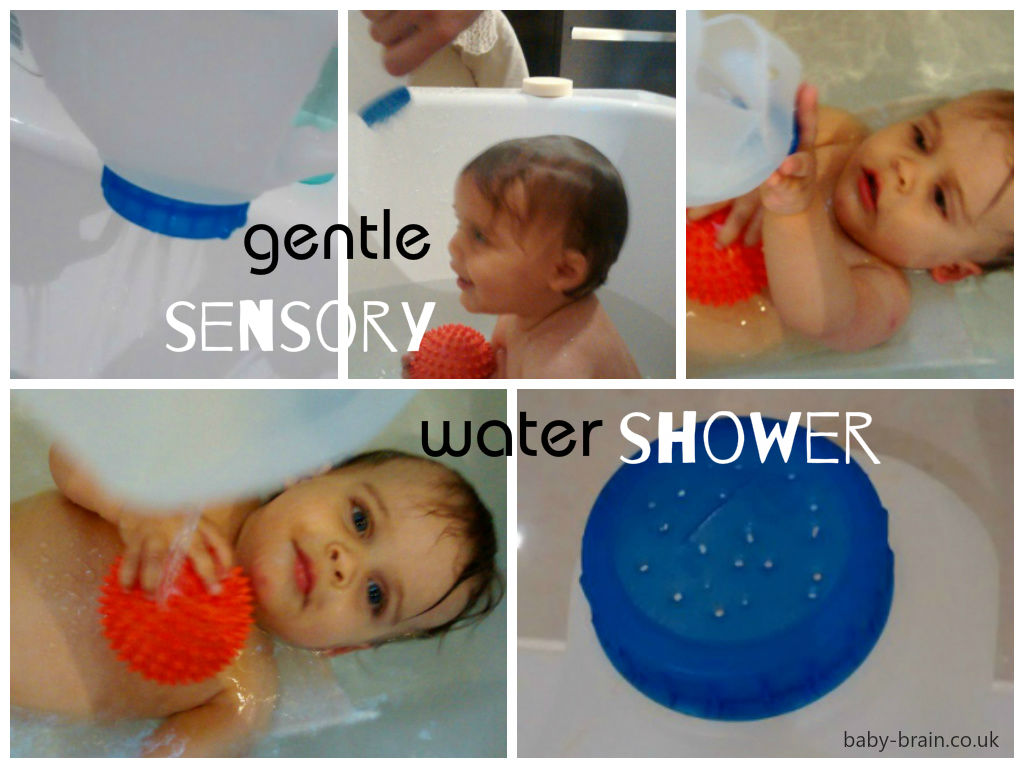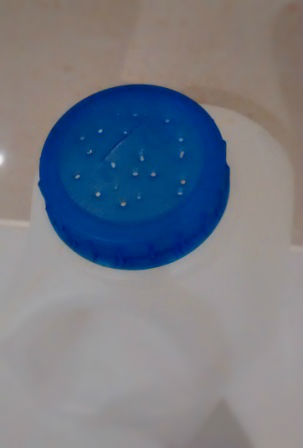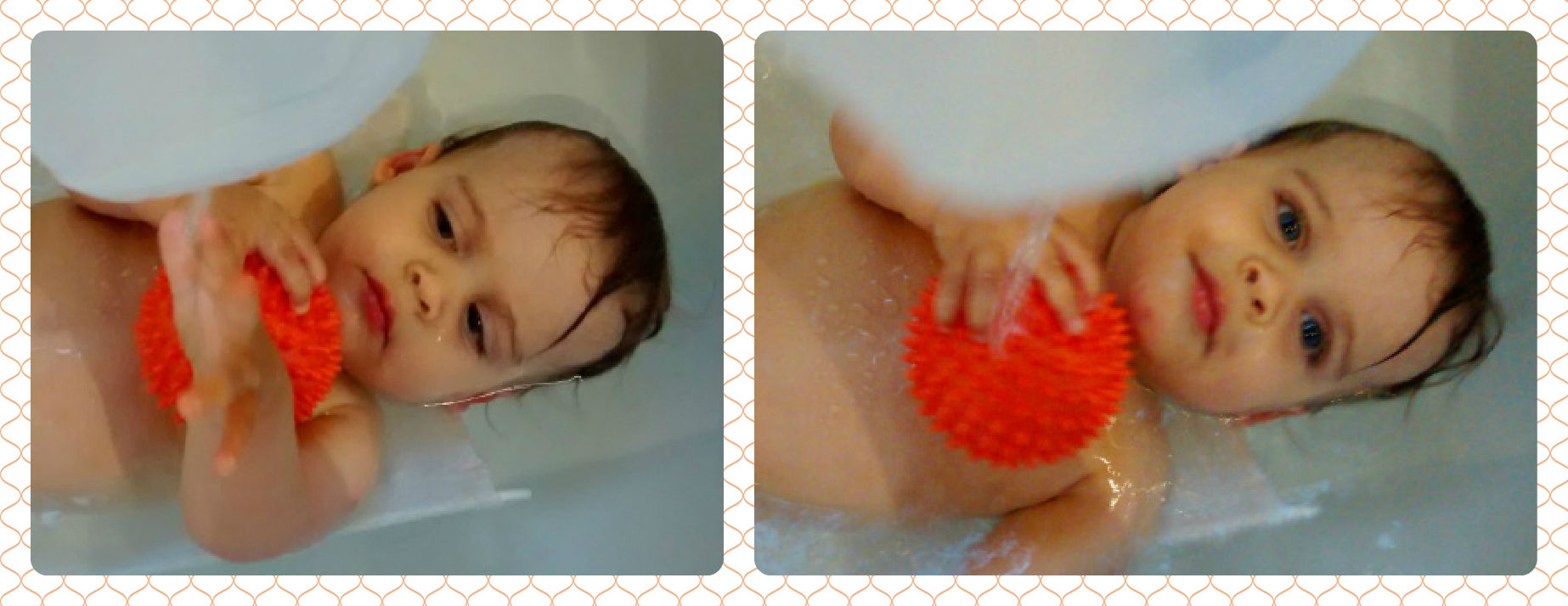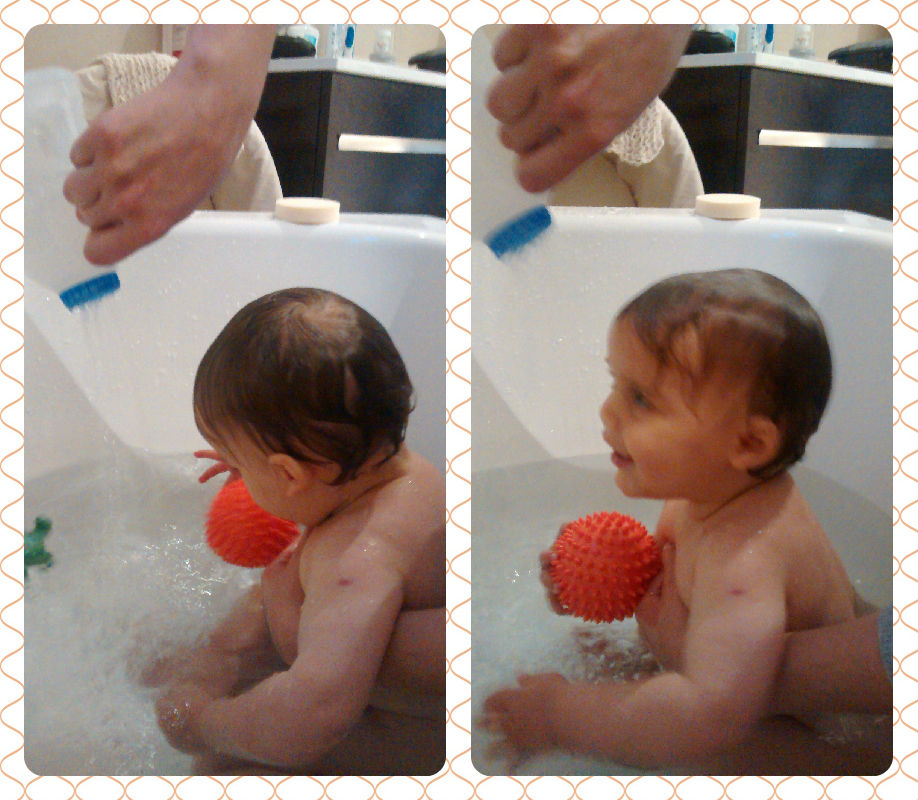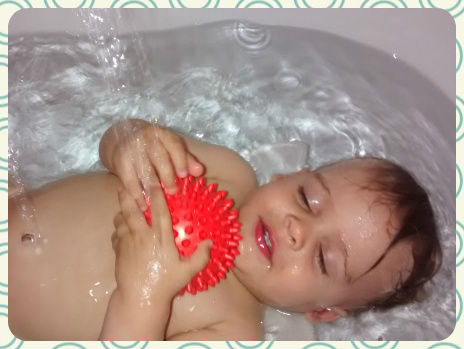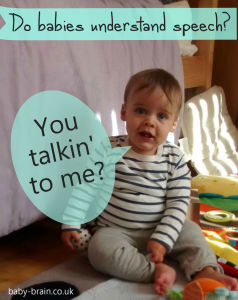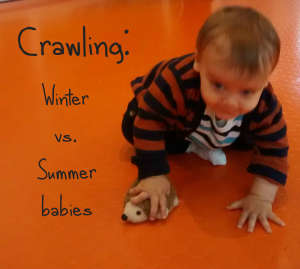
Crawling baby
Psychological research paper: I saw this paper here, about crawling, thought it looked interesting:
Babies Born in the Winter Start Crawling Earlier Than Those Born in the Summer
Study shows a seasonal effect on the pace of motor development in babies
Babies born between December and May (“winter” babies) were found to start to crawl earlier compared to those born between June and November (“summer” babies – although November is bit a bit winter-ish if you ask me, but hey-ho). The study involved motor observations at home when babies were 7 months old, and following the babies up when they started crawling. Parents were also asked to record the stages in their babies’ development.
The average age at which the babies started crawling was 31 weeks. But while the babies born in the winter (who started to crawl in the summer) started to crawl at an average 30 weeks, those born in the summer (who started to crawl in the winter) began crawling at an average of 35 weeks, with no differences noted between the boys or the girls or in the initial style of crawling (belly crawling or using hands and knees).
They also used a measure that assessed 4 different positions: Prone (on the stomach), supine (on the back), sitting, and standing – the overall scores the babies got on this assessment was higher for winter babies, but, there were no significant differences in scores between the winter and summer babies on the scores for the supine position, sitting, or standing.
So what do the researchers conclude?
According to the researchers, the findings strengthen the assumption that there is a window of opportunity for starting to crawl and stress the effect of the season on the start of crawling.
The current study took place in Israel. They talk about the seasonal effect because other studies where there is quite a difference between seasons have found similiar results, e.g. in Denver, Colorado and Osaka, Japan. But, but a study that took place in Alberta, Canada, didn’t find any seasonal effect. Despite winters being “long and cold” there, the researchers write that the environment in the house is very similar all year round because of winter heating.
They write:
“Although the winter in Israel is comparatively mild…. it turns out that it nonetheless influences the motor development of babies because of the differences between summer and winter in Israel,”
⇒ So why does season and seasonal effects seem to be relevant to when babies start to crawl?
The study notes that:
“The season influences the babies’ experiences in a number of ways, including
-
layers of clothing that are worn
-
the opportunities babies are given to spend on the floor on their stomachs, and,
-
the hours of activity and daylight
Awareness of the seasonal effect is important so that parents will give their babies proper movement and development opportunities in the winter as well,”
Ooooh I see, so it’s not necessarily anything inherent about winter vs summer children, but about environmental factors and what is going on in the baby’s home and environment when they are developing and reaching the age that they might start to develop crawling skills.
Those born in winter will approach crawling ready age in spring/summer where there might be more opportunities to go out, have more hours of day light in which in play, less restrictive or thick clothing on so that they can practice movement more freely, etc.
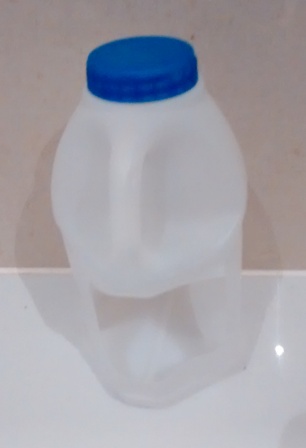 Make sure the plastic edge of the hole isn’t too sharp or scratchy because the Little Lovely was quite interested in the bottle and ended up grabbing it (as can be seen in the pictures below). I used a nail file to smooth any rough edges. He probably chewed on it a bit as well so, again, safety first and make sure the lid is on tightly. Always supervise this project and be especially cautious around water
Make sure the plastic edge of the hole isn’t too sharp or scratchy because the Little Lovely was quite interested in the bottle and ended up grabbing it (as can be seen in the pictures below). I used a nail file to smooth any rough edges. He probably chewed on it a bit as well so, again, safety first and make sure the lid is on tightly. Always supervise this project and be especially cautious around water
